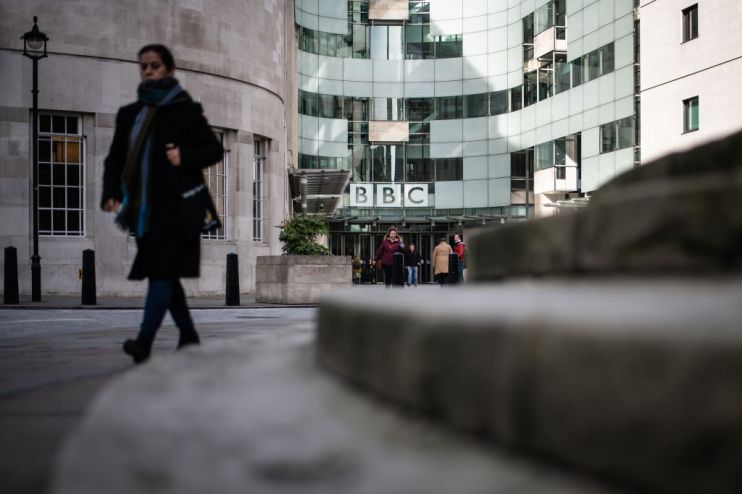BBC announces 450 job cuts and axes Inside Out

The BBC has announced it will slash 450 jobs from its BBC News England team and will axe its long-running Inside Out show as part of plans to shore up an extra £25m by 2022.
The BBC today said it would cut roughly 15 per cent of its BBC England team, as the broadcaster seeks to bolster its balance sheet amid the coronavirus crisis.
Seven of the 20 presenters on 6.30pm regional TV bulletins will be cut, and some local radio shows will be axed.
The publicly-funded broadcaster had already planned to save £800m before the coronavirus struck, but the pandemic has added a further £125m to the BBC’s savings list due to a slump in revenue. The broadcaster must save £25m of this by 2022.
The BBC will also axe its long-running current affairs programme Inside Out, which covers 11 different regions across the UK. The show will be replaced by a new weekly regional investigative programme set to launch on BBC one.
It comes after a group of cross-party MPs last week urged the BBC not to axe Inside Out, after the programme was put on hold during the pandemic.
Tory MP Steve Brine said: “There are presenters on the BBC’s Newsnight who earn more than the entire BBC South politics team put together, but the show they put out in our patch achieves a bigger audience than Andy Marr.”
The shake-up is part of the BBC’s plans to “modernise” its regional and local services, as the broadcaster seeks to “undergo a significant reinvention”.
The BBC will also commission a broader range of TV programming across the North and the Midlands, as the broadcaster attempts to shift its London-centric focus to better reflect England.
It will also “reimagine” the BBC’s political coverage outside Westminster with weekly regional politics programmes undergoing editorial and creative changes to reach a broader audience. Two digital political programmes will also be piloted in Yorkshire and the Midlands, and will be broadcast exclusively on iPlayer and BBC Sounds.
Helen Thomas, director of BBC England, said: “I’m proud people have turned to us for trusted news and information in huge numbers during Covid-19, proving the importance of our local and regional services.
“But those services were created more than 50 years ago, have changed very little and need significant reinvention. That has meant taking some difficult decisions.”
In a nod to reports that the BBC plans to roll out a digital subscription service, Thomas added: “We’re going to modernise our offer to audiences in England by making digital a central part of everything we do.”
However, government figures were unimpressed with the announcements.
The Department for Digital, Culture, Media & Sport (DCMS) committee chair Julian Knight said: “For the BBC to make the regions bear the brunt of 450 job cuts is devastating news. Just two weeks ago BBC executive James Purnell told us that the broadcaster was strongly committed to local and regional journalism. This decision is a strange way of demonstrating that commitment.
“It is also at odds with what he told us about plans for the BBC to do more outside London and the south-east on local and regional services with journalism and political programmes singled out.
Knight added: “As a public service broadcaster the corporation has a clear mandate to serve audiences in our regions and meet their expectations for a licence-fee funded quality regional news service. Today’s announcement appears to put that expectation in some doubt.”
It comes as the BBC last month said it will show more repeats over the summer and output will be “thinner” over the next year after the coronavirus pandemic forced the broadcaster to scrap its filming schedule.
Speaking to ministers at DCMS select committee hearing, senior executives said the BBC will be forced to bring back some “old classics” after dramas set to be filmed this summer were cancelled due to the lockdown.
Clare Sumner, the BBC’s director of policy, added that the BBC will make a decision in July whether to delay its planned scrapping of free TV licenses for over-75s until October.
Sumner alluded to the fact that it had already cost the company £40m a month to push the decision back from June to August. “We will be announcing our decision in July” she said, adding that the BBC would “give everybody time to transition to our new decision.”
James Purnell, director of radio and education at The BBC, rubbished claims that the broadcaster is set to scrap its arts and culture channel BBC Four, but added the channel would mainly show archival content as the broadcaster invests more heavily in luring a younger audience.
Sumner added that it was “going to be a tough period for the BBC,” as the broadcaster attempts to attract a fresh audience while output will be limited to a “mixture” of old classic such as Eastenders, and low-budget shows that can be easily innovated under social distancing rules.
Before the Open: Get the jump on the markets with our early morning newsletter